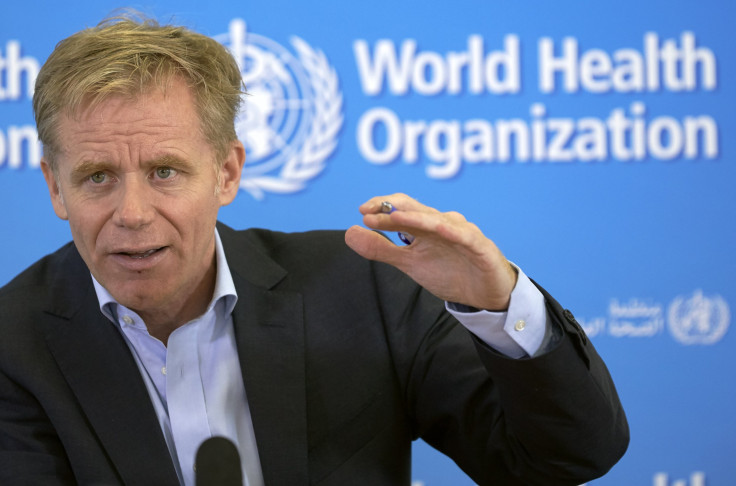Ebola Spreads 2014: 10,000 New Cases Per Week, Predicts World Health Organization

In just two months, the Ebola outbreak that has wreaked havoc on West Africa and is spreading to the U.S. and Europe could see 10,000 new cases every week, according to the World Health Organization. The latest prediction from WHO paints a bleak future, as the deadliest Ebola outbreak in history has health officials across the globe struggling to treat and prevent the disease that has no cure.
World Health Organization Assistant Director General Bruce Aylward said Tuesday that by December, there could be up to 10,000 Ebola cases per week in Guinea, Liberia and Sierra Leone, the epicenter of the outbreak that began in March. Aylward said WHO is focusing on isolating Ebola cases and treating patients with professional medical care. Meanwhile, the United Nations said Tuesday that its $1 billion Ebola fund aimed at slowing down the outbreak remains less than 25 percent funded.
Ebola has claimed 4,447 lives out of 8,914 cases, according to WHO's latest estimates on Tuesday. In recent days, the first Ebola patient to contract the disease in the U.S. died in Dallas and a nurse who treated him was diagnosed with Ebola. Meanwhile, Spain marked the first Ebola case outside of West Africa.
"Our goal is by 60 days we are able to identify all chains of #Ebola transmissions in Guinea, Liberia, Sierra Leone," Aylward tweeted Tuesday.
In the U.S., the Centers for Disease Control and Prevention said Monday it was "doubling down" on outreach and training to increase awareness of Ebola. "Stopping Ebola is hard," CDC Director Dr. Tom Frieden said.
The Ebola virus first appeared in 1976 in Sudan and the Democratic Republic of Congo near the Ebola River, from which the disease takes its name. The current outbreak started in Guinea and spread to Sierra Leone, Liberia, Nigeria and Senegal. West Africa has been particularly hit by the outbreak because of its limited health care systems and lack of infrastructure, according to WHO.
Early symptoms include fever, fatigue, muscle pain, headache and sore throat. This is followed by vomiting, diarrhea, rash, symptoms of impaired kidney and liver function and both internal and external bleeding, including blood in the stools.
© Copyright IBTimes 2024. All rights reserved.





















